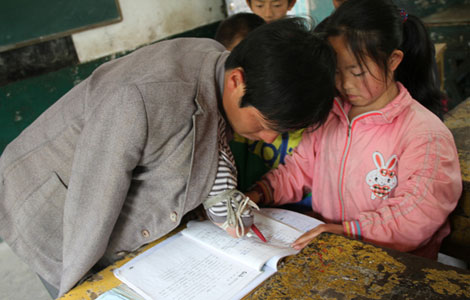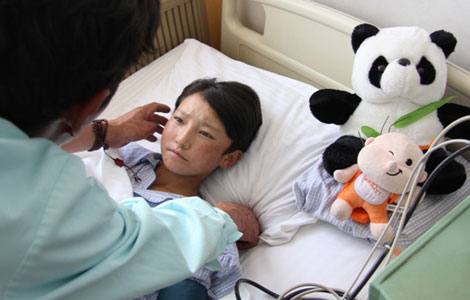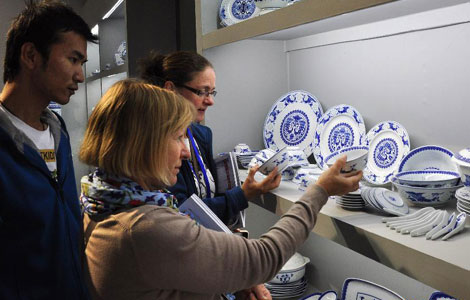Dalai Lama accused of seeking 'Tibet independence'
Updated: 2013-10-19 08:06
By Tuo Yannan in Brussels (China Daily)
|
||||||||
The Dalai Lama's so-called high-level autonomy of Tibet is in essence "Tibet independence in two steps", said Zhu Weiqun, chairman of the Ethnic and Religious Affairs Committee of the Chinese People's Political Consultative Conference - China's top political advisory body - during a visit to Europe on Thursday.
He paid the visit to observe how European countries deal with religious issues and to introduce China's policies on religion and autonomy. Brussels was his first stop.
Recently, the Dalai Lama visited the United States and Mexico to promote his so-called high-level autonomy of Tibet. Zhu said that the Dalai Lama's demand is a breach of China's regional ethnic autonomy law and against the interests of the Chinese people. "We cannot allow it to happen in China," he said.
Zhu said the Dalai Lama once announced in India that his so-called high-level autonomy is a realistic goal for members of the Tibetan ethnic group people.
"In the fundamental sense, 'high-level autonomy' means Tibet's independence. It is separated into two steps. The first step is so-called autonomy. The second one is actual independence," Zhu explained. In China, autonomy law and policy are always consistent and there is no such saying as "high-level autonomy" or "low-level autonomy", he added.
Therefore, Zhu said, the Dalai Lama wants to practice a different "regional autonomy". His so-called high-level autonomy is against China's autonomy system and does nothing but insert secessionist elements into China's regional ethnic autonomy law, he added.
"It's totally separatism and we cannot allow it," Zhu said.
Secession will not bring Tibetan people a better life and stable economy, Zhu stressed. Without a sound foundation of a political environment, the economy and trade cannot have a solid footing. There are many religions in China. In the past, China has handled religious affairs very well, he added.
"The Dalai Lama's recent moves have not affected Tibet's economic growth," he said.
The region's gross domestic product grew 13 percent year-on-year in 2012, marking the 20th consecutive year of double-digit growth.
In contrast to the serfdom and poverty in the past in Tibet, disposable income of residents in Tibet grew 17 percent in 2012, achieving the 10th year of double-digit growth.
Zhu called for people in Europe to better understand China's religious and autonomy policies. "Given the difference between Europe and China, Beijing has to choose its own path," he said.
tuoyannan@chinadaily.com.cn
Most Viewed
Editor's Picks

|

|

|

|

|

|
Today's Top News
Australian authorities fear worsening wildfires
Police: Somalia suicide attack kills at least 12
Police capture 2 US prisoners freed by mistake
US budget war rages on, Asia concerned
Researchers get clarification letter
JPMorgan to pay $13 billion: source
Bill Russell cited for loaded gun
Trending news across China
US Weekly

|

|















